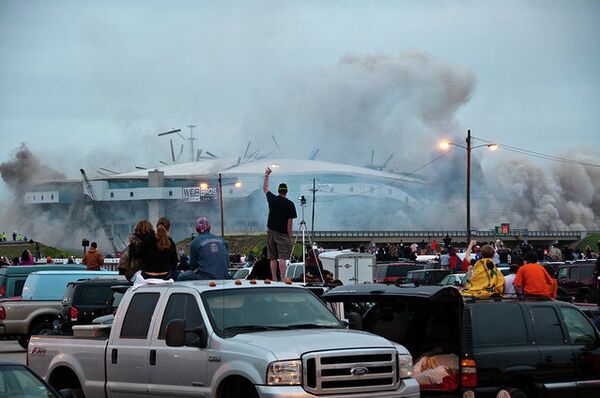The U.S. Geological Survey confirmed that ten minor earthquakes occurred in Irving, a town just outside the city of Dallas. While no serious damage has been reported, many confused residents called emergency services to report feeling tremors.
“I was on the computer, [and] my whole, I mean everything in my office just shook like the dickens,” one caller said. “I thought I was gonna catch something coming off the desk.”
Most of the earthquakes measured between 1.6 and 2.9 magnitude, which categorizes them as micro or very minor. But 3.5 and 3.6 quakes also occurred Tuesday afternoon, which are strong enough to be felt by people, and a 3.1 quake woke residents early on Wednesday morning.
“Shook my whole house,” a local woman told reporters.
The USGS placed the quakes’ epicenters just east-northeast of Irving.
While many residents were surprised and unfamiliar with the effects of an earthquake, but the phenomenon is not entirely new to the area. Since November, the Dallas-Fort Worth has now recorded 25 earthquakes in total, and in 2013, another Dallas suburb called Azle felt a series of tremors.
Unearthing the Culprit
Northern Texas has been trying to uncover the cause of this recent upsurge in seismic activity. Some speculate that the 2010 implosion of Texas Stadium may be a determining factor, but others note that the trend seemed to begin around the same time as the oil and gas boom of a few years ago, and many locals say the answer lies in wastewater disposal wells and the long, Texas history of hydraulic fracking.
Symbolically enough, the headquarters of Exxon Mobil, a key pioneer in hydraulic fracking, rests along a lake in Irving.
Fracking involves the breaking of underground shale deposits in order to extract trapped natural gas. THE USGS has released reports that, while inconclusive, the practice could have an effect on seismic activity.
“There is evidence that some central and eastern North America earthquakes have been triggered or caused by human activities that have altered the stress conditions in earth’s crust sufficiently to induce faulting,” a USGS statement reads. “Activities that have induced felt earthquakes in some geologic environments have included impoundment of water behind dams, injection of fluid into the earth’s crust, extraction of fluid or gas, and removal of rock in mining or quarrying operations.”
The Railroad Commission, the Texas oil and gas regulator, has said it will not be investigating the Irving quakes.
“There are no disposal wells in Dallas County,” a spokeswoman for the commission said. “And there is only one natural gas well in the vicinity, and it is an inactive well.”
Energy officials maintain that fracking is safe and causes no noticeable earthquake damage.



